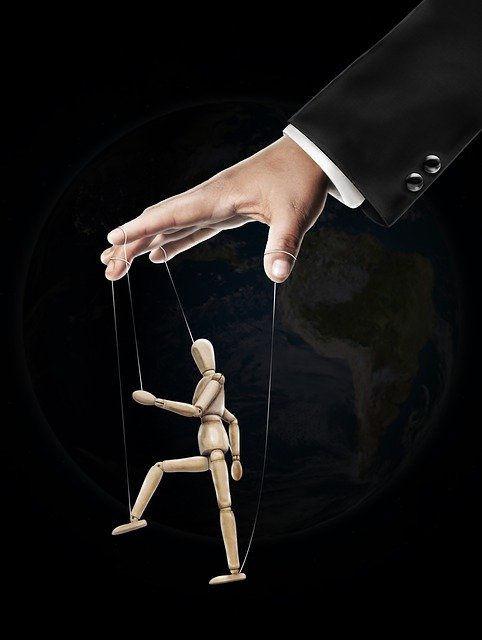Manipulation in Relationships

In order to achieve the desires of the ego, we often end up being manipulative in our relationships. This does not only happen in intimate relationships but in relationship with family members, friends, and colleagues at work. Some people may not be conscious of the fact that their actions are manipulative.
A manipulative relationship is one-sided and unbalanced, advancing the goals of the manipulator at the expense of the person being manipulated. No one likes being manipulated, so when the one being manipulated finds out about the manipulation, the relationship becomes troubled.
Manipulation is not influence. One may try to advance one’s goals with influence but one recognizes the rights and boundaries of other people, and it is based on direct, honest communication. Influence recognizes the integrity of the other person including the choice not to go along with attempted persuasion. Manipulation, on the other hand, depends on covert agendas and usually attempts to coerce the other into giving in. A manipulator may appear strong and in control but behind this show, insecurity is often found. With the tendency to exploit others, people who manipulate others have difficulty in maintaining good interpersonal relationships.
A manipulator does not usually start his manipulation at the beginning of a relationship. What does he gain if the relationship ends immediately? So, the manipulation progresses over time. The manipulator observes the other person’s vulnerabilities and learns how to exploit them.
Manipulative people have a strong need to be in control. Full of ego, they believe they will be annihilated if they lose this sense of control. They may display strong self-confidence but that is a compensation for the underlying feeling of insecurity. Their motives being self-serving, they pursue their goals regardless of the cost to the other. They find it difficult to show their vulnerable emotions because to them, this suggests they are not in control. One who is being manipulated may actually be enabling the manipulator. So, if you feel you are being manipulated in your relationship, you may want to sit down and see how you may be encouraging the manipulator unwittingly.
Depending on the severity of the manipulation and the damage it has done to your sense of integrity, you may need to consider whether it is worth it to continue in the relationship. There are of course situations where instead of leaving you may have to change the situation. Parent-child relationship is an example.
It is not helpful to try to out-manipulate a manipulator. You will be making yourself vulnerable to further manipulation. The relationship will then be a battle between egos and this can in no way be of benefit to you. Instead you open yourself to a continual experience of pain and suffering as you persist in your resistance mode.
You can disable a manipulative behaviour by making a change within yourself. Surrender. Surrendering does not mean you should be okay with the manipulation. Surrendering is more of an internal acceptance than an external resignation. It involves you seeing the situation the way it is. You do not surrender because you like it. You surrender simply because it is and so that you offer no resistance to what is. Surrender, then act. Change the dynamics of the manipulative relationship. Cease to be cooperative with manipulative tactics. Manipulators who keep working hard to maintain control in a relationship without success usually give up by leaving the relationship and looking for someone else to control – until they become conscious.